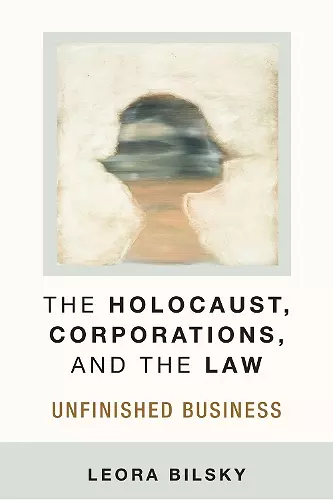The Holocaust, Corporations, and the Law
Unfinished Business
Format:Paperback
Publisher:The University of Michigan Press
Published:12th Sep '17
Currently unavailable, and unfortunately no date known when it will be back

The Holocaust, Corporations, and the Law explores the challenge posed by the Holocaust to legal and political thought by examining issues raised by the restitution class action suits brought against Swiss banks and German corporations before American federal courts in the 1990s. Although the suits were settled for unprecedented amounts of money, the defendants did not formally assume any legal responsibility. Thus, the lawsuits were bitterly criticized by lawyers for betraying justice and by historians for distorting history.
Leora Bilsky argues class action litigation and settlement offer a mode of accountability well suited to addressing the bureaucratic nature of business involvement in atrocities. Prior to these lawsuits, legal treatment of the Holocaust was dominated by criminal law and its individualistic assumptions, consistently failing to relate to the structural aspects of Nazi crimes. Engaging critically with contemporary debates about corporate responsibility for human rights violations and assumptions about “law,” she argues for the need to design processes that make multinational corporations accountable, and examines the implications for transitional justice, the relationship between law and history, and for community and representation in a post-national world. Her novel interpretation of the restitution lawsuits not only adds an important dimension to the study of Holocaust trials, but also makes an innovative contribution to broader and pressing contemporary legal and political debates. In an era when corporations are ever more powerful and international, Bilsky’s arguments will attract attention beyond those interested in the Holocaust and its long shadow.
“Bilsky’s groundbreaking works reveal how the Holocaust reparations litigation represents a new mode of accountability directed at the institutional dimension of atrocity missed by the traditional criminal law model. Bilsky's skillful account illuminates the larger significance of those cases not only for Holocaust responsibility itself, but also for accountability for grave violations of human rights. It makes a vital contribution to both fields, shedding new light on the complex relationship between law and history.”
—Mayo Moran, University of Toronto
ISBN: 9780472053612
Dimensions: unknown
Weight: unknown
252 pages